Comprehensive Guide to Garden Maintenance in Croydon
Introduction to Garden Maintenance
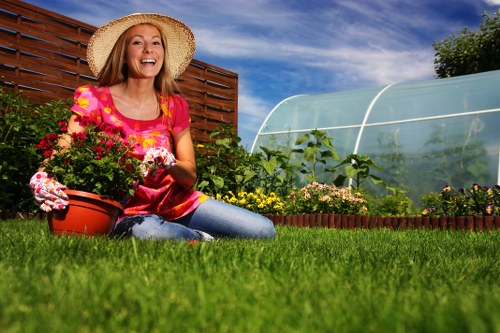
Maintaining a beautiful garden requires dedication, knowledge, and the right tools. In Croydon, garden maintenance is essential not only for aesthetic appeal but also for the health and longevity of your plants.
Whether you're a seasoned gardener or a novice, understanding the fundamentals of garden maintenance can transform your outdoor space into a vibrant and thriving environment.
In this article, we will explore various aspects of garden maintenance specific to the Croydon area, providing you with practical tips and expert advice to keep your garden in top shape.
Understanding Croydon's Climate and Its Impact on Gardening
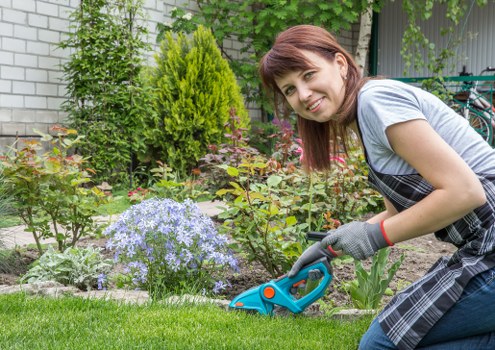
Croydon experiences a temperate climate, characterized by mild winters and warm summers. This climate influences the types of plants that thrive and the maintenance routines required to keep them healthy.
Knowing the local weather patterns, soil types, and seasonal changes is crucial for effective garden maintenance. It allows gardeners to select suitable plants and implement appropriate care strategies throughout the year.
Additionally, understanding Croydon's climate helps in anticipating challenges such as pests and diseases, enabling proactive measures to protect your garden.
Essential Garden Maintenance Tasks
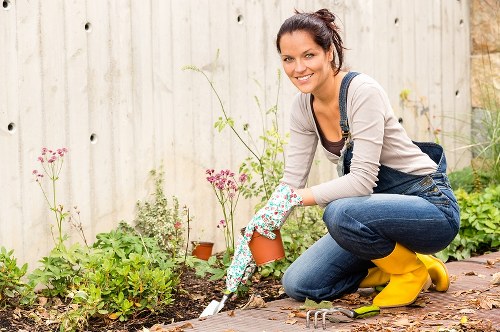
Regular garden maintenance involves a series of tasks that ensure your garden remains attractive and functional. Key tasks include:
- Weeding: Removing unwanted plants to reduce competition for nutrients.
- Pruning: Trimming plants to encourage healthy growth and maintain desired shapes.
- Lawn Care: Mowing, aerating, and fertilizing the lawn to keep it lush and green.
- Soil Management: Testing and amending soil to provide optimal conditions for plant growth.
- Planting and Mulching: Adding new plants and applying mulch to retain moisture and suppress weeds.
Consistent attention to these tasks ensures that your garden remains a source of pride and relaxation.
Seasonal Maintenance Tips
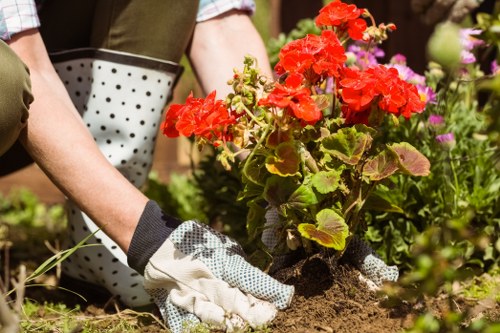
Each season brings unique challenges and opportunities for garden maintenance in Croydon. Adapting your maintenance routine to the seasons can enhance the health and beauty of your garden.
Spring
Spring is the time for planting new flowers and vegetables, pruning shrubs, and preparing the soil. It's essential to start early to take advantage of the mild weather.
Summer
Summer maintenance focuses on watering, weeding, and pest control. Regular irrigation and monitoring plant health are vital during the hotter months.
Autumn
Autumn involves clearing fallen leaves, planting bulbs for the next spring, and protecting plants from the upcoming cold.
Winter
During winter, focus on garden cleanup, protecting sensitive plants, and planning for the next gardening season.
Choosing the Right Plants for Croydon Gardens
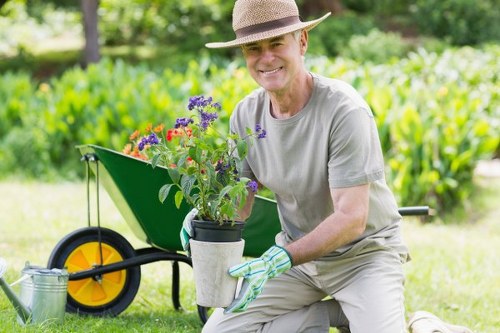
Selecting plants that are well-suited to Croydon's climate and soil conditions is fundamental for successful gardening. Consider the following when choosing plants:
- Hardiness: Ensure plants can withstand local temperature ranges.
- Soil Compatibility: Match plants to the soil type in your garden.
- Sun Exposure: Select plants based on the amount of sunlight they require.
- Water Needs: Choose plants with similar watering requirements to simplify maintenance.
- Growth Habit: Consider the size and spread of plants to avoid overcrowding.
Consulting with local nurseries or garden centers in Croydon can provide valuable insights into the best plant choices for your specific garden conditions.
Soil Health and Fertilization
Healthy soil is the foundation of a thriving garden. Regular soil testing helps determine nutrient levels and pH balance, guiding effective fertilization practices.
In Croydon, soil amendments such as compost and organic matter can improve soil structure, drainage, and fertility. Applying the right fertilizers at the appropriate times supports robust plant growth and resilience.
Additionally, incorporating mulch into your garden helps retain moisture, regulate soil temperature, and suppress weeds, contributing to overall soil health.
Watering Strategies for Optimal Plant Health
Proper watering is critical for maintaining plant health and preventing issues like root rot and drought stress. In Croydon, it's essential to adopt efficient watering strategies tailored to the local climate.
Drip Irrigation Systems
Drip irrigation provides targeted water delivery directly to the plant roots, reducing water waste and minimizing evaporation. This method is particularly effective during dry spells.
Rainwater Harvesting
Collecting rainwater for garden use is environmentally friendly and cost-effective. It ensures a sustainable water supply, especially during periods of low rainfall.
Mulching
Applying mulch around plants helps retain soil moisture, reduce water usage, and stabilize soil temperatures, contributing to healthier plant growth.
Pest and Disease Management
Protecting your garden from pests and diseases is crucial for maintaining plant health. Integrated Pest Management (IPM) strategies offer sustainable solutions:
- Regular Monitoring: Inspect plants frequently to detect early signs of pests or diseases.
- Biological Controls: Introduce natural predators like ladybugs and beneficial nematodes to manage pest populations.
- Cultural Practices: Maintain garden hygiene by removing dead plant material and avoiding overwatering.
- Chemical Controls: Use pesticides sparingly and opt for eco-friendly options when necessary.
- Resistant Varieties: Choose plant varieties that are naturally resistant to common pests and diseases.
Implementing these measures helps create a balanced ecosystem, reducing reliance on harmful chemicals and promoting sustainable gardening.
Pruning and Trimming Techniques
Pruning is essential for maintaining plant shape, encouraging healthy growth, and preventing diseases. Proper pruning techniques vary depending on the type of plant:
Flowering Shrubs
Prune after flowering to remove spent blooms and promote new growth. Avoid heavy pruning, which can reduce flowering in the following season.
Fruit Trees
Prune during the dormant season to improve air circulation and sunlight penetration, enhancing fruit production and tree health.
Evergreen Plants
Lightly trim throughout the year to maintain shape and remove any dead or damaged branches.
Tools for Effective Pruning
Using the right tools ensures clean cuts and reduces the risk of plant damage:
- Hand Pruners: Ideal for small branches and precise cuts.
- Loppers: Suitable for thicker branches that hand pruners cannot handle.
- Pruning Saws: Necessary for large branches and extensive pruning tasks.
Lawn Care and Maintenance
A well-maintained lawn enhances the overall look of your garden and provides a pleasant space for relaxation and recreation.
Mowing
Regular mowing promotes dense turf by preventing bare spots and encouraging grass to grow thicker.
Aeration
Aerating the lawn relieves soil compaction, allowing air, water, and nutrients to reach the roots more effectively.
Fertilization
Applying appropriate fertilizers at the right times supports healthy grass growth and resilience against pests and diseases.
Weed Control
Maintaining a weed-free lawn is essential for preventing competition for resources. Use pre-emergent herbicides and manual removal to manage weeds effectively.
Garden Design and Landscaping
Thoughtful garden design and landscaping not only enhance the beauty of your outdoor space but also improve functionality and sustainability.
Creating a Focal Point
Incorporate a focal point such as a water feature, sculpture, or brightly colored plant to draw attention and add interest to your garden.
Pathways and Structures
Designing pathways and adding structures like pergolas or sheds provides structure and accessibility, making the garden more usable and visually appealing.
Plant Selection and Arrangement
Choose a variety of plants with different heights, colors, and textures to create a layered and dynamic landscape.
Sustainable Landscaping Practices
Implementing sustainable practices such as xeriscaping, using native plants, and incorporating rain gardens reduces environmental impact and conserves resources.
Hardscaping Essentials
Integrating hardscaping elements like patios, decks, and fences into your garden adds functionality and complements the natural surroundings.
Patios and Decks
Creating outdoor living spaces provides areas for dining, entertaining, and relaxation. Choose materials that complement your garden's aesthetic.
Fencing
Installing fences enhances privacy, defines property boundaries, and can serve as a support for climbing plants.
Lighting
Garden lighting highlights key features, improves safety, and extends the usability of your garden into the evening.
Eco-Friendly Gardening Practices
Adopting eco-friendly practices in garden maintenance promotes environmental sustainability and reduces your carbon footprint.
Composting
Composting organic waste recycles nutrients back into the soil, enhancing its fertility and structure.
Rain Gardens
Rain gardens capture and filter stormwater, reducing runoff and replenishing groundwater supplies.
Native Plants
Using native plants supports local biodiversity, requires less maintenance, and is better adapted to the local climate.
Reducing Chemical Use
Minimizing the use of chemical fertilizers and pesticides promotes a healthier ecosystem and reduces the risk of environmental contamination.
Professional Garden Maintenance Services in Croydon
While DIY garden maintenance is rewarding, hiring professional services in Croydon can ensure optimal results and save you time.
- Expertise: Professionals bring knowledge of local climate, soil conditions, and plant varieties.
- Efficiency: Skilled gardeners can complete maintenance tasks more quickly and effectively.
- Comprehensive Services: From lawn care to landscape design, professionals offer a wide range of services tailored to your needs.
- Customized Solutions: Tailored maintenance plans address the specific requirements of your garden.
- Peace of Mind: Knowing your garden is in expert hands allows you to enjoy it without the stress of upkeep.
Consider consulting with local garden maintenance companies in Croydon to explore service options and find the right fit for your garden.
Choosing the Right Garden Maintenance Service
When selecting a garden maintenance service, consider the following factors:
- Experience: Look for companies with a proven track record and positive reviews.
- Services Offered: Ensure the company provides the specific services you need.
- Pricing: Compare quotes to find a service that fits your budget.
- Certifications: Check for relevant certifications or memberships in professional organizations.
- Customer Service: Choose a company that communicates effectively and values customer satisfaction.
Tools and Equipment for Effective Garden Maintenance
Having the right tools and equipment is essential for efficient garden maintenance in Croydon. Investing in quality tools can make tasks easier and more enjoyable.
Basic Tools
- Hand Trowel: For planting and small digging tasks.
- Pruning Shears: Essential for trimming plants and shrubs.
- Lawn Mower: Keep your lawn neat and well-maintained.
- Garden Fork: Useful for aerating soil and turning compost.
- Watering Can or Hose: Ensure your plants receive adequate water.
Advanced Equipment
For larger gardens or more intensive maintenance, consider investing in additional equipment:
- Rotary Tiller: Helps prepare and cultivate large garden beds.
- Chainsaw: Necessary for cutting thick branches and managing larger trees.
- Electric or Gas-Powered Tools: Increase efficiency for tasks like mowing and trimming.
Maintenance of Tools
Regular maintenance of your garden tools ensures longevity and performance. Clean tools after use, sharpen blades, and store them in a dry place to prevent rust and damage.
Creating a Sustainable Garden
Sustainability in gardening involves practices that protect the environment, conserve resources, and promote biodiversity. Creating a sustainable garden in Croydon enhances the ecological balance and supports local wildlife.
Water Conservation
Implementing water-saving techniques like drip irrigation, rainwater harvesting, and drought-resistant plants reduces water usage.
Organic Gardening
Using organic fertilizers and natural pest control methods maintains soil health and minimizes environmental impact.
Supporting Wildlife
Planting native species, providing habitats, and avoiding pesticides create a haven for beneficial insects, birds, and other wildlife.
Composting and Recycling
Recycling garden waste through composting not only reduces landfill contributions but also enriches the soil with essential nutrients.
Enhancing Garden Aesthetics
Beyond functionality, aesthetic appeal is a key aspect of garden maintenance. Enhancing the visual elements of your garden makes it a more enjoyable and inviting space.
Color Coordination
Choose a color palette that complements your home's exterior and creates visual harmony. Mixing annuals and perennials ensures continuous blooms throughout the seasons.
Texture and Form
Incorporate plants with varying textures and forms to add depth and interest. Contrasting leaf shapes and plant heights create a dynamic landscape.
Garden Art and Decor
Integrate garden art, such as sculptures, fountains, or decorative pots, to personalize your garden and reflect your style.
Pathway Design
Designing inviting pathways with materials like gravel, stone, or wood enhances accessibility and adds structure to your garden layout.
Maintaining Garden Structures
Structures like pergolas, trellises, and fences are integral to garden design and require regular maintenance to ensure their longevity and functionality.
Wooden Structures
Regularly inspect wooden structures for signs of rot or damage. Apply protective coatings to prevent moisture ingress and extend their lifespan.
Metal Structures
Check for rust and corrosion on metal structures. Use appropriate treatments to maintain their appearance and strength.
Stone and Masonry
Clean stone surfaces and repair any cracks or damage to preserve their integrity and beauty.
Supporting Climbing Plants
Ensure that trellises and pergolas are sturdy enough to support climbing plants. Regularly adjust and secure supports as needed.
Lighting Solutions for Your Garden
Proper lighting enhances the beauty and functionality of your garden, allowing you to enjoy the space during evening hours.
Types of Garden Lighting
- Path Lights: Illuminate walkways for safety and guidance.
- Spotlights: Highlight specific features like plants, statues, or water elements.
- String Lights: Create a warm and inviting ambiance for outdoor gatherings.
- Solar Lights: Eco-friendly options that harness solar energy for illumination.
Energy-Efficient Lighting
Opt for LED or solar-powered lights to reduce energy consumption and lower utility bills while maintaining effective illumination.
Installation Tips
Plan your lighting layout to ensure even coverage and avoid glare. Use timers or motion sensors to manage energy usage and enhance security.
Dealing with Common Garden Challenges
Every garden faces its own set of challenges. Identifying and addressing these issues promptly ensures a healthy and thriving garden.
Weed Invasion
Regular weeding prevents unwanted plants from taking over your garden. Use mulching, manual removal, and eco-friendly herbicides to manage weeds effectively.
Pest Infestations
Monitor your garden for signs of pests and implement integrated pest management techniques to control infestations without harming beneficial insects.
Plant Diseases
Learn to recognize common plant diseases and take preventive measures such as proper spacing, watering practices, and crop rotation to minimize their impact.
Soil Erosion
Prevent soil erosion by planting ground covers, installing retaining walls, and using mulch to stabilize the soil structure.
Maintaining Garden Equipment
Proper maintenance of garden equipment ensures that your tools remain effective and safe to use. Regular upkeep extends the lifespan of your equipment and enhances their performance.
Cleaning
After each use, clean your tools to remove dirt, sap, and debris. Use a brush and mild detergent for thorough cleaning.
Sharpening
Keep blades sharp to ensure precise cuts and reduce strain during use. Sharpen pruners, shears, and lawnmowers regularly.
Storage
Store tools in a dry, sheltered place to prevent rust and damage. Use tool racks or sheds to organize equipment efficiently.
Repair and Replacement
Inspect tools for any signs of wear or damage. Repair minor issues promptly and replace equipment that is beyond repair to maintain a safe and effective garden maintenance routine.
Benefits of Regular Garden Maintenance
Consistent garden maintenance offers numerous benefits that enhance both the environment and your personal well-being.
- Improved Aesthetics: A well-maintained garden is visually appealing and adds value to your property.
- Enhanced Plant Health: Regular care ensures plants are free from pests, diseases, and stressors, promoting robust growth.
- Increased Property Value: Attractive gardens can significantly boost the market value of your home.
- Environmental Benefits: Healthy gardens contribute to biodiversity, air quality, and soil health.
- Personal Well-Being: Gardening provides physical exercise, reduces stress, and offers a sense of accomplishment.
Creating a Sustainable Ecosystem
Maintaining a diverse and balanced garden supports local wildlife, fosters pollinator populations, and contributes to a resilient ecosystem.
Community and Social Benefits
Beautiful gardens can serve as community landmarks, promote social interactions, and encourage environmental stewardship among residents.
Conclusion
Garden maintenance in Croydon requires a comprehensive approach that considers the local climate, soil conditions, and specific plant needs. By implementing regular maintenance routines, adopting sustainable practices, and seeking professional assistance when needed, you can cultivate a lush and vibrant garden that brings joy and tranquility.
Investing time and effort into your garden not only enhances its beauty but also contributes to your overall well-being and the health of the environment.
Take the Next Step
If you're looking to elevate your garden maintenance routine, contact us today or book your service now to experience expert care and support for your Croydon garden.